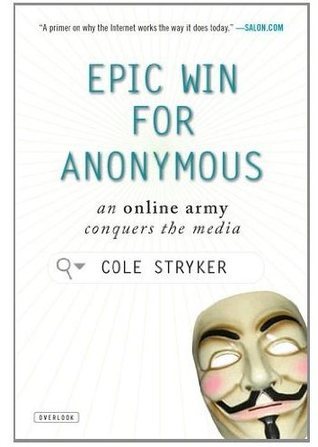What do you think?
Rate this book


304 pages, Paperback
First published September 1, 2011
4chan is a multimedia experience, and there's only so much information that can be conveyed on the printed page. I highly encourage the reader to read this book near a computer so you can look up pertinent information as you go. If you're having trouble wrapping your head around a specific concept, online resources like Google, Wikipedia and Know Your Meme will help fill in the blanks.Translation: "I didn't bother coming up with a thesis or doing any actual research. Try the web instead!"